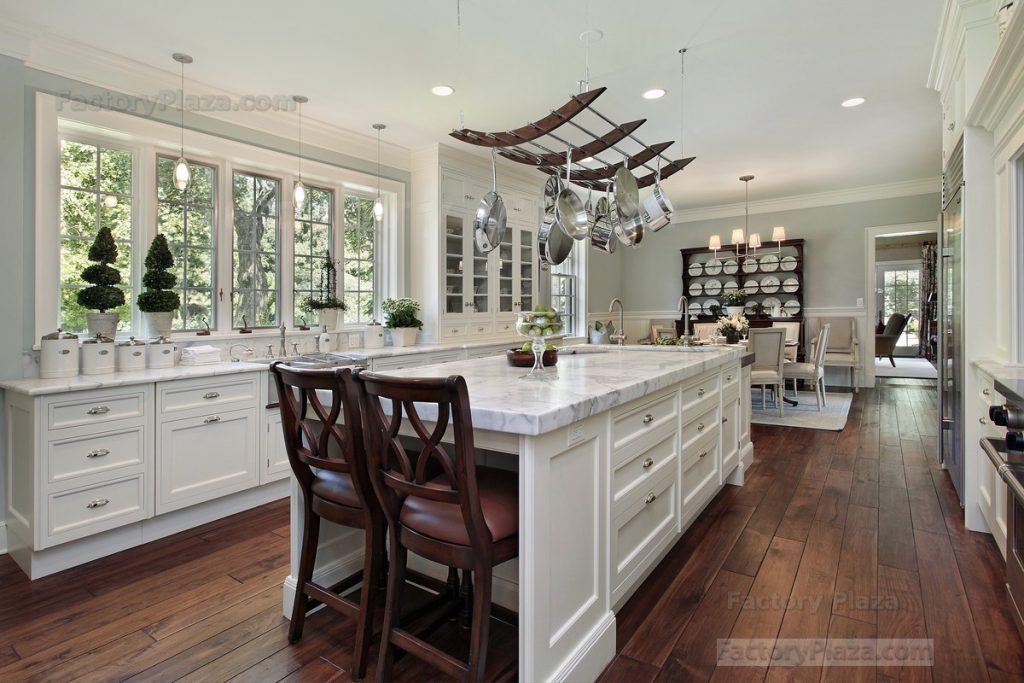
Porcelain slabs are excellent choice for shower walls but not the best choice for countertops since they are easier to chip and crack than granite, Quartz or nano glass.
Porcelain Countertops Pros:
– Porcelain countertops are stain and scratch resistant. It’s so hard that it’s the most resistant material to nicks, scratching, or other damages,
– Porcelain countertops are heat-resistant.
– Porcelain countertops are maintenance free.
– Porcelain is not porous, so it is easy to clean.
– Porcelain slabs don’t oxidize or change color over time.
– Porcelain slabs are offered in many colors and they can be made to look like natural stone.
– When you install porcelain slab, you know that your countertop will last the lifetime of your home.
– Porcelain slabs are only about 1cm to 2cm thick. Thinner porcelain slab can be installed right over an existing countertop material, such as butcher block or laminate!
– The porcelain slabs are easier than granite to cut, fabricate and install. They are not as heavy as 3cm stone.
Porcelain Countertops Cons:
– Porcelain countertops are thin. Miter edge is made to create the fancy thicker look of the edges.
– With the thin porcelain edges are square. If you want round edges, consider natural stone, nano glass or Quartz
– Good skills and special tools are required to get clean, chip-free cuts of the porcelain slabs. Specially if mites edges are done.
– The porcelain color design is only on top of the surface.
-Subsurface with backer board need to be installed.
Conclusion
Porcelain countertops are not popular so far. If the porcelain would be made thicker and with vein colors going through out the slab, it would be a great choice for countertops.

